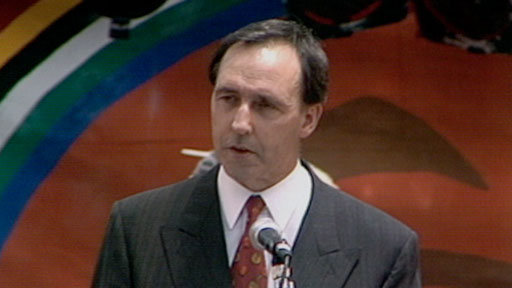“Just a mile or two from the place where the first European settlers landed, in too many ways it tells us that their failure to bring much more than devastation and demoralisation to Aboriginal Australia continues to be our failure.“
Prime Minister Paul Keating
On the 10th of December 1992 Australian Prime Minister Paul Keating delivered a powerful speech at Redfern Park.
This was the first time that a Prime Minister had taken such a definitive and public stand on the issue of indigenous injustice. It was an historic first step towards reconciliation.
The Context Trifecta
The Roman God Ocasio must have been shining his benevolent light on Mr Keating in the planning of the Redfern speech. He achieved the trifecta when it comes to maximising the element of context.
- The speech was used as the occasion to launch Australia’s celebration of the 1993 International Year of the World’s Indigenous People. Keating leverages the credibility of a global movement in his opening words.
- The speech came six months after the high court’s decision on native title; rejecting the notion of terra nullius. Keating not only references the decision as a source of authority, he directly challenges anyone who might still cling to pre-Mabo assumptions of entitlement.
- He brought the message to the people. Redfern in 1992 was not quite the gentrified hipster neighbourhood it is today. Keating’s intention was to address the indigenous community where they live.
Strength and Commitment
Prime Minister Keating was known for his unflinching speaking style, and the Redfern speech is a particularly good example. There are several factors that would make many speakers feel a little gun shy. Contentious statements are delivered in a forthright manner, challenging potential counter-arguments he must know linger very close to the surface:
“We simply cannot sweep injustice aside. Even if our own conscience allowed us to, I am sure, that in due course, the world and the people of our region would not.
There should be no mistake about this – our success in resolving these issues will have a significant bearing on our standing in the world.
However intractable the problems seem, we cannot resign ourselves to failure – any more than we can hide behind the contemporary version of Social Darwinism which says that to reach back for the poor and dispossessed is to risk being dragged down.”
Keating would certainly have faced criticism from the opposition and less progressive Australians, but he also faced direct dissent from the Redfern community during his address.
When you listen to the video (below) you can hear some hecklers in the crowd. Keating is masterful in his ability to continue undeterred. He does not acknowledge the hecklers nor does he raise his voice to accommodate the background noise.
Anaphora – Rhetorical Flair for a Serious Message
Keating establishes his position by implicating all non-indigenous Australians as the responsible party. Emphasising ‘we’ at the beginning of these successive statements:
“We took the traditional lands and smashed the traditional way of life.
We brought the diseases. The alcohol.
We committed the murders.
We took the children from their mothers.
We practised discrimination and exclusion”
Then, when landing his point, Keating again calls on non-indigenous Australians to adopt a position of empathy. Beginning with the word ‘imagine’, he turns the tables:
“Imagine if ours was the oldest culture in the world and we were told that it was worthless.
Imagine if we had resisted this settlement, suffered and died in the defence of our land, and then were told in history books that we had given up without a fight.
Imagine if non-Aboriginal Australians had served their country in peace and war and were then ignored in history books.
Imagine if our feats on sporting fields had inspired admiration and patriotism and yet did nothing to diminish prejudice.
Imagine if our spiritual life was denied and ridiculed.
Imagine if we had suffered the injustice and then were blamed for it.”
A Disappointing Postscript
This year will mark 28 years since Paul Keating delivered a brave and progressive message in the form of his Redfern Speech. The message is as relevant today as it was in 1992. But the outcomes have certainly fallen short of what Keating and his supporters would have hoped for.
Watch and listen to the full version of Keating’s Redfern speech:
__________________________________________________
A Speech a Week Series
Words have the power to change the world. Speeches are used by leaders, revolutionaries and evangelists to persuade people to think differently, to feel something new and to behave in remarkable ways.
In this series we will examine one notable speech per week. We hope to cast a wide net – including politicians, business leaders, preachers, entertainers and philosophers. These articles will consider matters of content and style to uncover the secrets of oratorical success.
By examing the components of speechcraft we can improve our own powers of persuasion. We will come to appreciate the craft of eloquence – guarding against silver-tongued miscreants whilst gradually building our own expressive capability.
If you would like to contribute to the series by suggesting a speech, please send us a message via the mojologic website.


